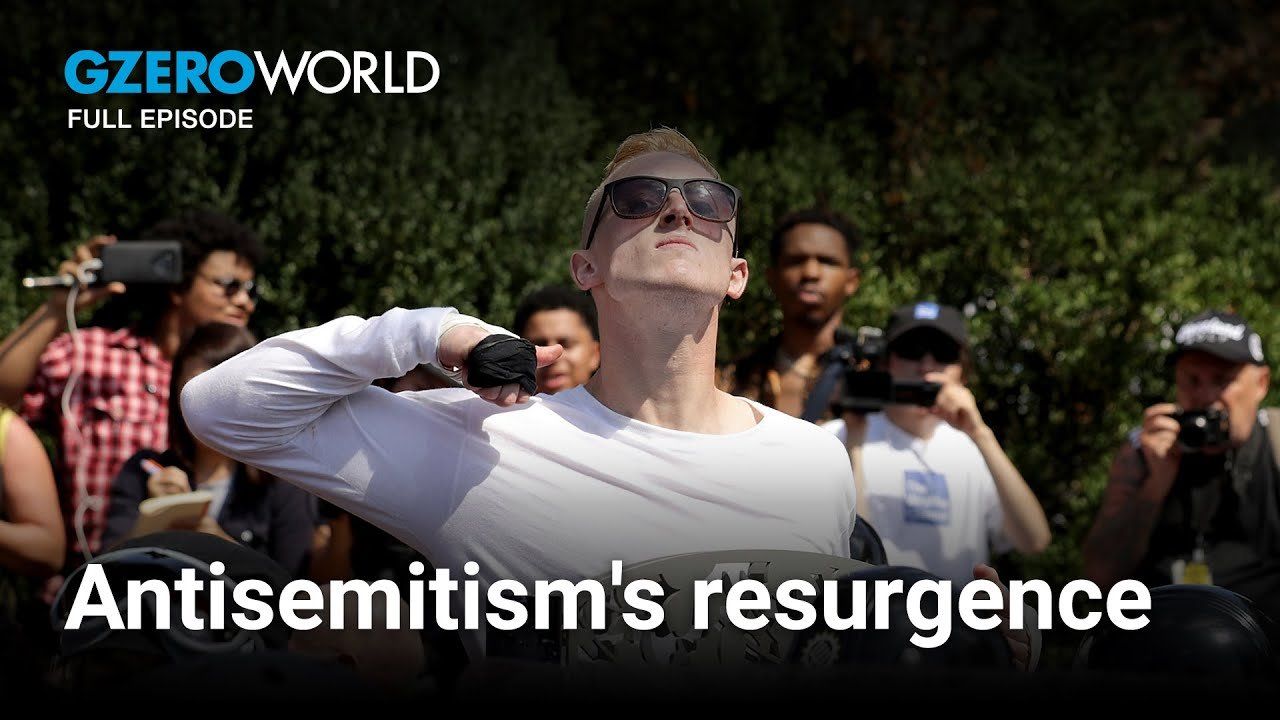GZERO World with Ian Bremmer
Modern antisemitism on the rise

Modern antisemitism on the rise | GZERO World

Antisemitism is nothing new. An ancient Greek historian in the second century BCE railed against the “ridiculous practices” of the Jews and the “absurdity of their law.”
But lately, it feels like an ugly trend is back in fashion. And the numbers back that up. The Anti-Defamation League found 3,700 instances of antisemitic harassment, vandalism, or assault around the country last year, the highest number in its 43 years of tracking. And then there was the horrific attack at Pittsburgh’s Tree of Life synagogue in 2018, which killed 11 people and remains the deadliest attack on the Jewish community in the United States.
At what point do extremist politics—whether on the Right OR Left—become hate? And where do you draw the line between criticizing Israeli policies and being antisemitic? To help Ian Bremmer wade through these difficult questions is the Israeli actress, writer, and activist Noa Tishby. She served as Israel’s Special Envoy for Combating Antisemitism before Prime Minister Netanyahu dismissed her for speaking out against his controversial judicial reform agenda.
And later, an early look at a new film about one of Israel’s most controversial leaders (present Prime Minister excluded). Golda Meir, Israel's first and still only female prime minister, was beloved until her handling of the Yom Kippur War of 1973. Now a new film starring Helen Mirren tries to reframe her tarnished legacy.
Walmart’s $350 billion commitment to American manufacturing means two-thirds of the products we buy come straight from our backyard to yours. From New Jersey hot sauce to grills made in Tennessee, Walmart is stocking the shelves with products rooted in local communities. The impact? Over 750,000 American jobs - putting more people to work and keeping communities strong. Learn more here.